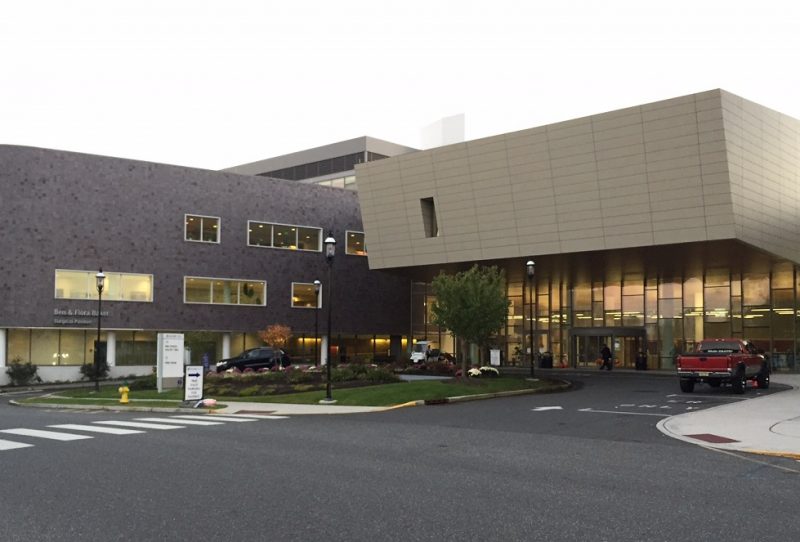 Campaign Kicks off with “Dinner and a Dream” Event May 10
Campaign Kicks off with “Dinner and a Dream” Event May 10
Each year Shore Medical Center’s Maternity Department helps an estimated 1,200 babies make their grand entrance into the world. And for each one of those precious deliveries, both baby and mother alike are monitored closely with the help of a fetal monitor, from the time they enter the hospital to the moment the baby is delivered. Recent advances in fetal monitoring technology have proven to provide women and their babies with an even better labor and birth experience and outcome. While Shore’s current fetal monitors are effective, the maternity team is eager to take advantage of these new technologies in fetal monitoring. Shore is launching a $100,000 fundraising campaign, “Campaign for Exceptional Births,” to purchase ten new fetal monitors, and seeks the support of the community in reaching its goal.
One way Shore is engaging with the community to raise funds for this campaign is through “Dinner and a Dream,” an event being held on May 10 from 5:30 pm to 7:30 pm at Greate Bay Country Club in partnership with the Atlantic City Ballet. The event features dinner and a live condensed performance of Shakespeare’s comedy “A Midsummer Night’s Dream” by the Atlantic City Ballet. One of Shakespeare’s best known comedies, “A Midsummer Night’s Dream” blurs the line between magic and reality, leading to a night so fantastical you have to dream to believe it. Throw in feuding fairies and a troupe of bumbling actors, and you’ve got a sparkling comedy with something for everyone. Tickets are priced at $30 for Shore’s Stainton Society members and $50 for non-members. Children 8 and up are welcome to attend at the Stainton Society member price. To purchase tickets, visit
www.givetoshore.com or call Doreen Gordon at
609-653-3800.
Fetal monitors consist of two straps and sensors attached to a machine, which measures a baby’s heart rate as well as the mother’s uterine contractions. Together, these measurements tell the labor and delivery team important information about the well-being of the baby, including whether or not there are signs of possible distress. From these readings the labor and delivery team determines if any intervention is needed.
With all technology, there comes a time when it must be replaced. For Shore’s fetal monitors, that time is now. While current monitors are still effective, newer monitors have flatter, more sensitive sensors and are more accurate with movement. They may allow a mother to use a bathtub or shower, bounce on a birthing ball, and move her body in ways that reduce pain. At the same time, the labor and delivery team can be assured that the monitors are still capturing the most accurate information.
Studies show that movement during labor can also help shorten the duration of labor, decrease the chances the mother will need an epidural or a C-section, and ultimately lead to a more satisfying birth experience for the mother, and a healthy baby. Not only do these new fetal monitors improve the mother’s mobility and decrease risk of C-sections, they also improve the efficacy of monitoring for mothers whose body type makes monitoring more difficult.
Christl Dooley, nurse manager of the maternity department, says that while fetal monitors are used in all births, they are especially critical in high risk pregnancies.
“We’re seeing more and more high risk pregnancies today, as women are choosing to have babies later in life or presenting with complications like obesity, hypertension or gestational diabetes. This brings an increased need for interventionalized care, but with these new monitors we can know more about what’s going on with mom and baby and support moms in having a healthy baby and the kind of delivery they want, despite being high risk,” Dooley says.
To learn more about the “Campaign for Exceptional Births,” and to make a donation in support of the campaign, visit
www.givetoshore.org or call
609-653-3800.
About Shore Medical Center
At Shore Medical Center, located in Somers Point, NJ, kindness complements an extraordinary level of clinical sophistication. People are the foundation of this modern medical center where advanced technology harmonizes with compassionate care. Shore Medical Center attracts the area’s best physicians, nurses and clinicians, and is the first and only hospital in New Jersey and one of 86 healthcare organizations worldwide to earn Designation as a Planetree Patient-Centered Care Hospital®. Recognized for its dedication to patient safety, Shore has received seven consecutive "A" grades in The Leapfrog Group's Hospital Safety Score since Fall 2014. Shore Medical Center is home to six Centers of Excellence for Cancer, Cardiovascular, Neurosciences, Spine and Orthopedic, Emergency and Maternity and Pediatric care. Shore's affiliations include Penn Medicine, Onsite Neonatal Partners, St. Christopher's Hospital for Children, Mayo Medical Laboratories, and Advanced Radiology Solutions. In addition, Shore is a member of the Jefferson Neuroscience Network and has physicians on staff from the Rothman Institute. In 2011, Shore opened its Pediatric Care Center, the first of its kind in New Jersey, and its state-of-the-art Surgical Pavilion and Campus Expansion. The Shore Medical Center Planned Giving& Development team, which includes the Auxiliary, creates and implements dynamic philanthropic programs that support the mission of Shore Medical Center (www.GivetoShore.org). For more information about Shore Medical Center, visit www.ShoreMedicalCenter.org.
 Campaign Kicks off with “Dinner and a Dream” Event May 10
Campaign Kicks off with “Dinner and a Dream” Event May 10